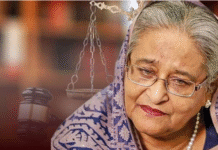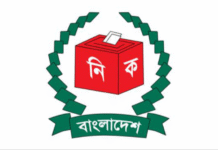
PETALING JAYA: With Malaysia set to open its doors to Bangladeshi workers this year after a three-year freeze, the “secrecy” over the deal signed by the two countries has come under fire.
Workers rights NGO, Tenaganita, said not only was the memorandum of understanding (MoU) signed behind closed doors on Dec 19 in Kuala Lumpur, the details of the document were also shrouded in secrecy.
This, it told the human resources ministry, did not bode well for Malaysia’s record of past inhumane treatment of foreign workers.
Its director, Joseph Paul, said that according to a document posted on the Facebook page of Dhaka’s expatriates’ welfare and overseas employment ministry, all costs incurred by workers on both ends would be fully borne by the employers. It would not be passed on to workers by way of deduction from their wages.

“This is in line with requirements under the related International Labour Organization’s convention.
“The arrangement should be such that the employers pay the full recruitment fees or it may be classified as debt bondage,” he told FMT.
On Dec 18, FMT reported that employers were expected to pay the full costs involved in bringing the Bangladeshi workers to Malaysia under the new MoU.
Among them are:
- Security deposits as required by the immigration department of Malaysia;
- Processing fees;
- Visit pass (Temporary Employment);
- Insurance under the Employment Injury Scheme as provided in the Employees Social Security Act, the Foreign Workers Health Insurance Scheme (Spikpa) or any other insurance scheme required for the workers;
- Medical examination in Malaysia;
- Immigration security clearance;
- Air ticket for first-time entry and exit after completion of contract;
- Attestation fee by the Bangladesh High Commission;
- Service charges by local registered agents; and,
- Covid-19 tests.
Paul said Tenaganita was concerned that the MoU might not have any provision on how to deal with migrant workers facing abuse by their employers and questioned why the document was not made public.
In the past, he said many workers had to borrow money and pawn their jewellery to come here to work and had to slog for years to pay their dues back home.
The debts included the cost involved in documentation and medical examination.
“We don’t want the intake to be done in a secretive manner which could lead to claims of forced labour. Many big firms in Malaysia are paying the price for such action and this must be avoided at all costs.”
He said Malaysia was currently under global scrutiny over the forced labour issue, something which could affect foreign investment in the future.
According to a report in Bangladesh’s Daily Star recently, recruiting agents in Dhaka had alleged that many bogus companies had previously secured job demand letters from the Malaysian home ministry using dubious means.
“The Bangladesh High Commission in Kuala Lumpur also approved them without verification.
“That resulted in a situation where workers went there and faced exploitation, including joblessness, non-payment and underpayment,” the daily quoted an agent as saying, adding that both governments must ensure that the jobs are genuine.
According to the agent, each Bangladeshi worker had to spend a total of about RM9,000 for a job in Malaysia in 2018 before the freeze was enforced, while the agreed amount was only about RM1,750.
The report quoted agencies as saying that if the MoU was properly enforced, the actual migration cost at the Bangladesh end will be less than RM2,400, including the agent’s fees and costs involved in documentation.
Commenting on the issue, Paul said if the recruitment was not controlled and monitored diligently by approving authorities in both countries, it may lead to another messy situation like before.










